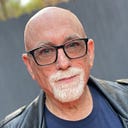The Purpose of Education
Having a meaningful purpose for education makes the process more fulfilling

The topic of education and the details about learning itself are near and dear to me. Learning theory. Education systems. Self-education strategies. Learning resources. Anything having to do with how we best learn and thereby improve ourselves and hopefully the world around us always lures me in and proves to be captivating.
When I wrote The Art of Self-Education: How to Get a Quality Education for Personal and Professional Success Without Formal Schooling, it was in many ways an attempt to document much of my lifelong fascination with how one learns best, especially when one’s learning is self-directed.
Thoughts about this stuff bang around in my head constantly as is often the case when I think about simplification. Keeping things simple. Dissecting the complex to the simplest core components so they’re best understood. I find things easier to remember and adopt if they’re pared down to the most granular basic elements.
So, when it dawned on me what the entire purpose of our education system and the culture within which is exists should be (at least how I see it), and what a simple concept it turned out to be, it was a big deal for me. Here’s what I was thinking.
The purpose of all education is to equip people for as happy, fulfilled, and content a life as possible.
That’s really it. Seems so simple when I word it that way. I’ve bandied about countless ideas in the past on the purpose of education, but seeing it this way encapsulates all my other attempts.
Now I know you might be thinking I’m wrong. The purpose of education is to prepare people for the workforce. The purpose of education is to educate an electorate. The purpose of education is to inspire the intellect. And so on. And you’re correct.
But I contend that no one can possibly be truly “happy, fulfilled, and content” if those things aren’t happening. Work competency and satisfaction. Being an informed citizen and voter. Exploring the depths of one’s mind and all there is to learn. These and other worthwhile objectives are all purposes of education. However, I see them as subsets of a higher purpose represented by the idea I’m putting forth here.
Perspective matters. Having the perspective that the “ultimate” purpose of education is to foster individual happiness, fulfillment, and contentment removes the focus from the externalized duties of education and instead elevates education and learning to the status of a higher calling, an esteemed and noble pursuit unto itself with the added external benefits it can help manifest. I think this is important.
Tell a student, be they a child, young adult, or adult, that their educational pursuits are about getting a job or being a good citizen or cultivating a reasoned mind and often their eyes glaze over. Of course, these are important things, but they’re not always the most motivating of reasons.
From now on, when I think about the purpose of my own education or I’m explaining to someone else the purpose of a good, robust education, I’m going to default to this new perspective. It seems to align best with how I see education improving our lives, individually and collectively.
I encourage you to foster a deep learning practice and embrace your formal and informal education to help you and others be happier, more fulfilled, and optimally content. I think the many important subsets of this higher purpose will fall into place more easily if you do.
If this idea works for you too, or you have other ideas about the purpose of education, I’d love to read your comments.
You can use this link to access all my writings and social media and ways to support my work.
